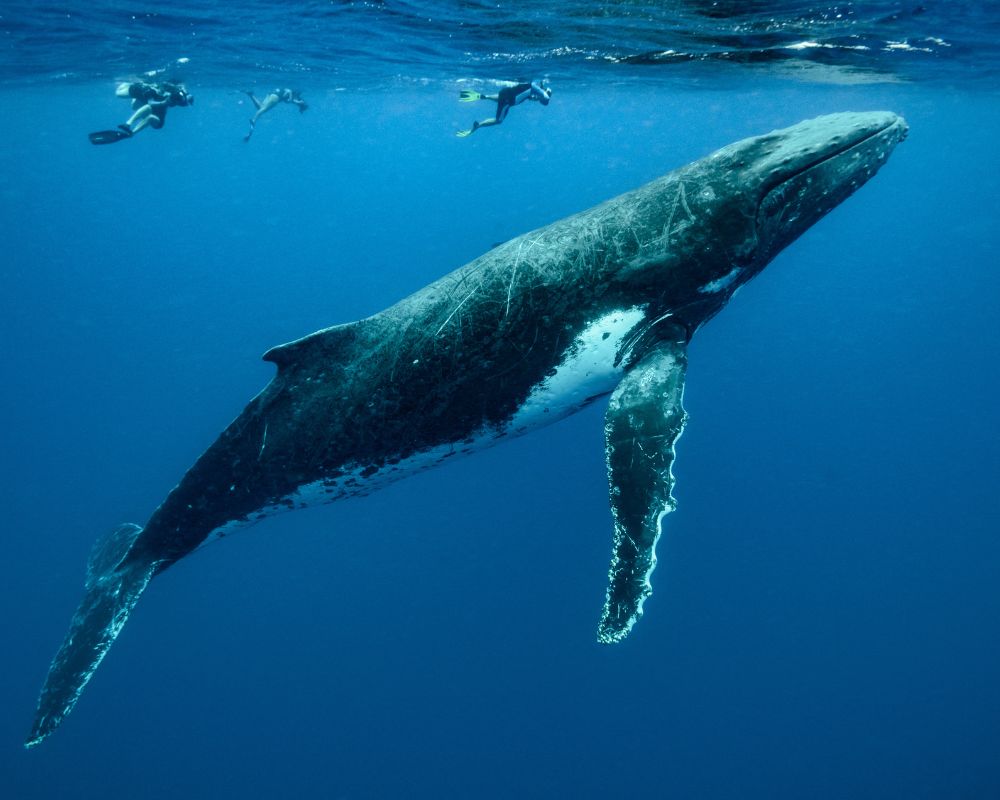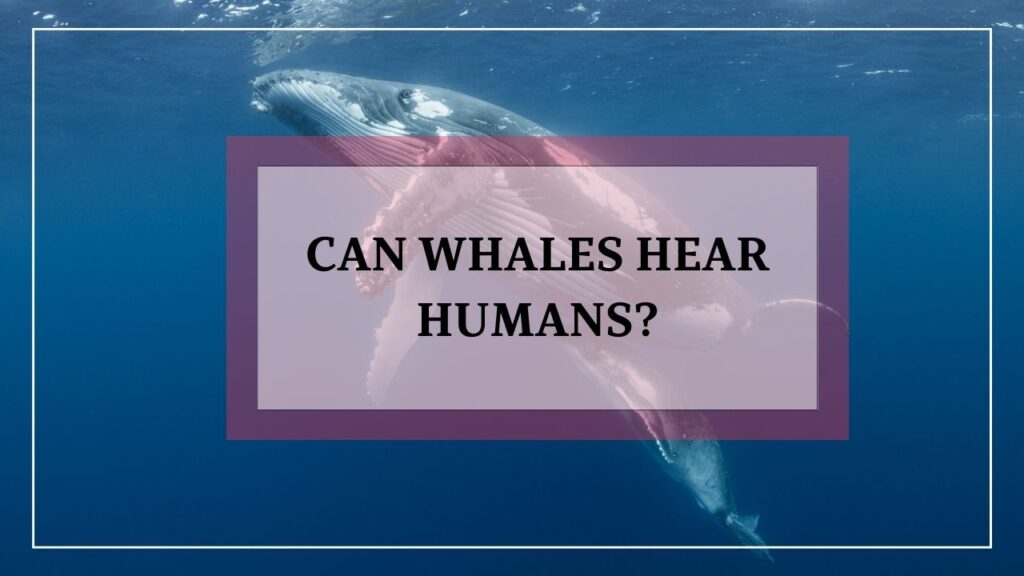Have you ever wondered if whales can hear humans? It’s a question that’s often asked by curious individuals who are fascinated by the ocean’s largest creatures.
The answer is not as straightforward as a simple yes or no, but it’s a fascinating topic that sheds light on the complexities of whale communication and how it’s impacted by human noise.
In this post, we’ll explore the world of whale communication, learn about their hearing abilities, and discuss the impact that human noise has on these majestic creatures. So, let’s dive in!
Can Whales Hear Human Sounds?

Whales are known for their incredible hearing abilities, but can they hear the sounds that humans make? The short answer is yes, they can.
Frequency Range Of Whale Hearing
Whales have a remarkable range of hearing, much broader than humans. They can detect sounds at frequencies between 7 and 200,000 Hertz (Hz), while humans can only hear sounds between 20 and 20,000 Hz.
This means that whales can detect sounds that are much higher and lower in frequency than we can.
Frequency Range Of Human Noises
Humans are constantly producing noise, from talking and music to the sound of vehicles and industrial activity. Most human-generated sounds fall within the range of 20 to 20,000 Hz, which is within the range of sounds that whales can hear.
Impact Of Human Noise On Whale Communication
While whales can hear human sounds, the impact of this noise on their communication abilities is a topic of ongoing research and concern.
Whales use sound to communicate with each other for a variety of purposes, including mating, hunting, and navigating. Human noise can interfere with these communication signals, potentially disrupting their behavior and even causing harm.
Impact of Human Noise on Whale Communication
As we mentioned earlier, human noise can interfere with whale communication signals, potentially disrupting their behavior and even causing harm. Let’s take a look at some examples of human noise that can impact whales.
Shipping And Commercial Vessels
Large vessels, such as cargo ships and cruise liners, can produce significant amounts of noise in the water. This noise can be disruptive to whale communication signals and can also disorient them, causing them to become lost or stranded.
Underwater Explosions
Underwater explosions, whether from military exercises or oil drilling, can produce loud, sudden sounds that can be harmful to whales. These explosions can cause physical harm and can also disrupt whale communication, leading to confusion and disorientation.
Seismic Airguns
Seismic airguns are used in offshore oil and gas exploration to produce sound waves that can penetrate the ocean floor to detect geological features. These airguns produce some of the loudest sounds in the ocean, and their impact on whale communication and behavior is of particular concern.
What Can We Do to Help?
Now that we know how human noise can impact whales, what can we do to help mitigate this issue?
Regulations And Policies To Reduce Noise Pollution
One solution is through implementing regulations and policies to reduce noise pollution in the ocean.
For example, the International Maritime Organization (IMO) has developed guidelines for reducing underwater noise from commercial vessels, which include measures such as reducing vessel speed and using noise-reducing technologies.
In addition, the United States Marine Mammal Protection Act (MMPA) requires the National Oceanic and Atmospheric Administration (NOAA) to protect marine mammals and their habitats, which includes regulating underwater noise pollution.
Technology Solutions To Reduce Vessel Noise
Another solution is through technology. There are various technologies being developed to reduce vessel noise, such as bubble curtains that can reduce noise levels around construction sites and underwater noise-reducing devices that can be attached to the hulls of vessels.
In addition, vessel operators can make changes to their vessels to reduce noise levels, such as adding mufflers to their engines or using quieter propulsion systems.
By implementing these solutions, we can help reduce the impact of human noise on whale communication and behavior, ultimately helping to protect these magnificent creatures.
FAQs
What Do Whale Sounds Do To Humans?
Whale sounds can have a calming effect on humans and have been used in therapies to reduce stress and anxiety. Some people also find whale songs to be enjoyable to listen to.
Do Whales Enjoy Humans?
There is no clear evidence that suggests that whales enjoy interacting with humans.
In fact, some species of whales, such as the beluga whale, are known to be curious and may approach boats or humans, but it’s important to keep in mind that these are still wild animals and interactions should be approached with caution and respect.[1]
How Far Can A Whale Be Heard By Humans?
Whales produce sounds at low frequencies that can travel long distances in the water. In some cases, whale calls have been recorded up to 10,000 miles away from their source.
However, the sounds that humans can hear from whales are typically limited to a range of a few hundred yards or less.

